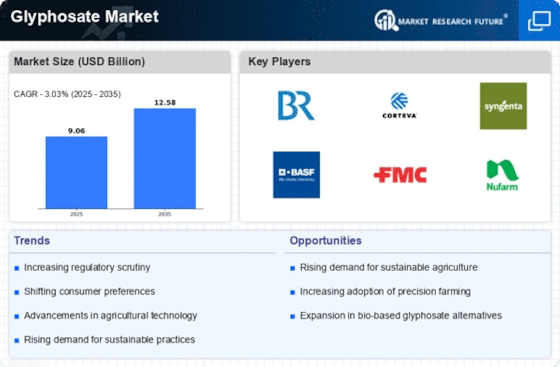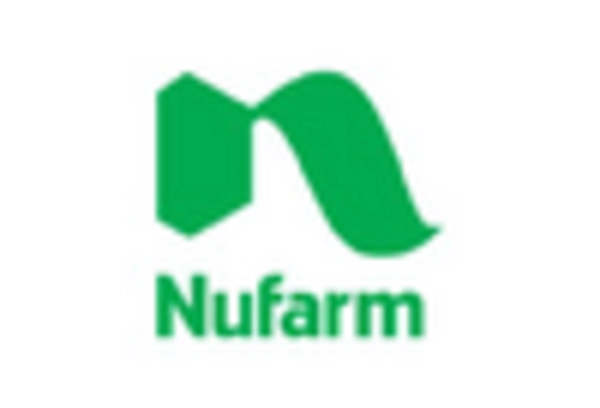Market Share
Glyphosate Market Share Analysis
The Glyphosate Market's landscape is changing with global agriculture, and the herbicide business has come under intense scrutiny. The rising trend is seen in the demand for alternative products to glyphosate, which is a very common herbicide. Farmers, as well as regulatory authorities, have been pushed into looking at alternative weed control mechanisms due to environmental concerns, health risks, and herbicide-resistant weeds, amongst others. The other trend in the Glyphosate Market is that glyphosate-resistant crop technologies have evolved. Although glyphosate-resistant crops were initially praised because of their efficacy in controlling weeds, there has been an increase in weed populations that are resistant to this chemical, which has posed problems. That has resulted in the development of next-generation crop technologies such as multi-herbicide tolerant crops or those with enhanced resistance traits. The increasing awareness of sustainability and environmental factors is also influencing glyphosate market trends. A major emphasis on sustainable and eco-friendly agricultural practices from consumers and stakeholders will go a long way toward reducing the overall environmental impact of using herbicides. Globalization in agriculture affects the market trends of glyphosate. With farming now extending across various regions and climates, a need arises for formulations of glyphosates adaptable to different conditions. Makers are adjusting their product formulations to meet the diverse needs of farmers within different agroecosystems owing to the global nature of the Glyphosate Market. This means that these products must be able to work on many crops, countries, and soil types. Technological progress influences the Glyphosate Market greatly. The evolution of herbicide practices occurs through innovation in precision farming, improved application technologies, and the development of new glysophate formulations. Regulations are other reasons behind the circumstances of the glyphosate market. Few countries have imposed restrictions or banned its use altogether due to increased scrutiny. Numerous countries have reported cases where they have either restricted or banned the use of glyphosates following strict legislation governing its usage. Their aim is usually directed towards addressing issues regarding environmental and health concerns. A changing regulatory environment is forcing manufacturers to spend more on research and development in order to ensure compliance with current and future regulations, as well as to create alternative products that meet emerging global requirements.


















Leave a Comment